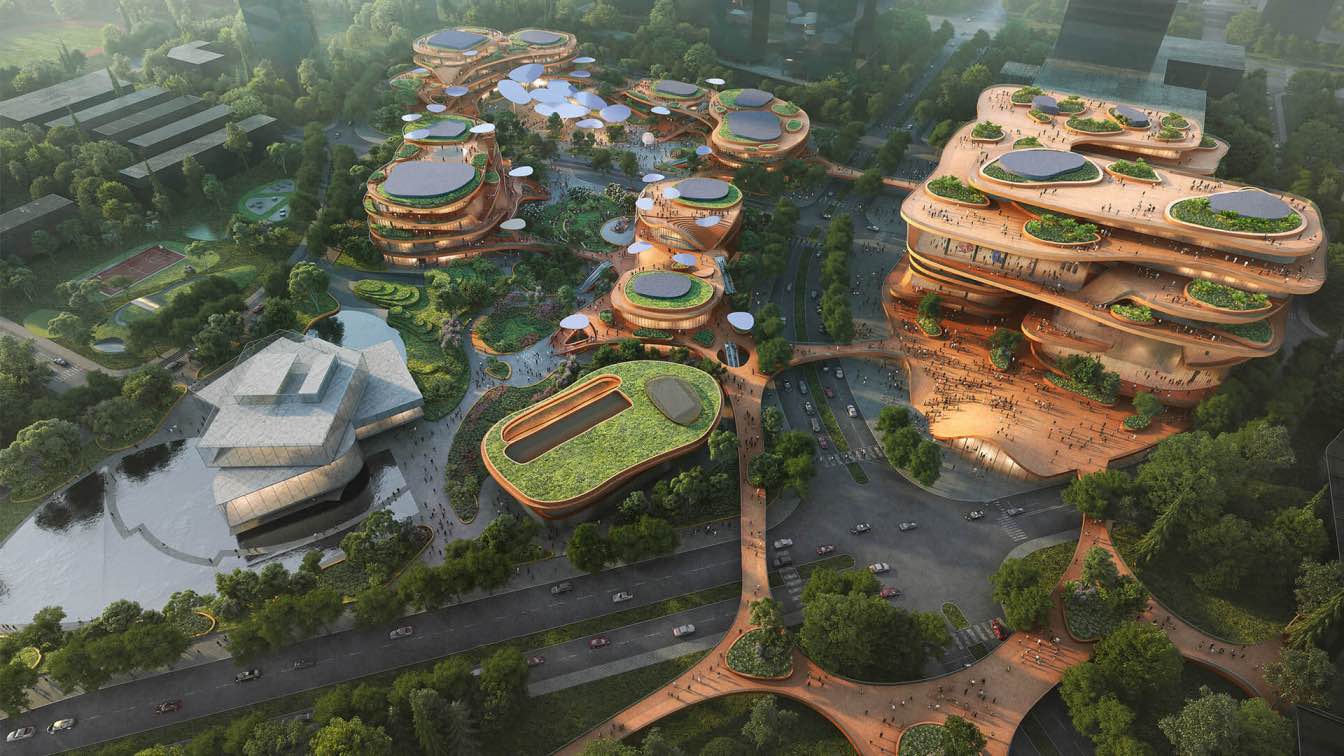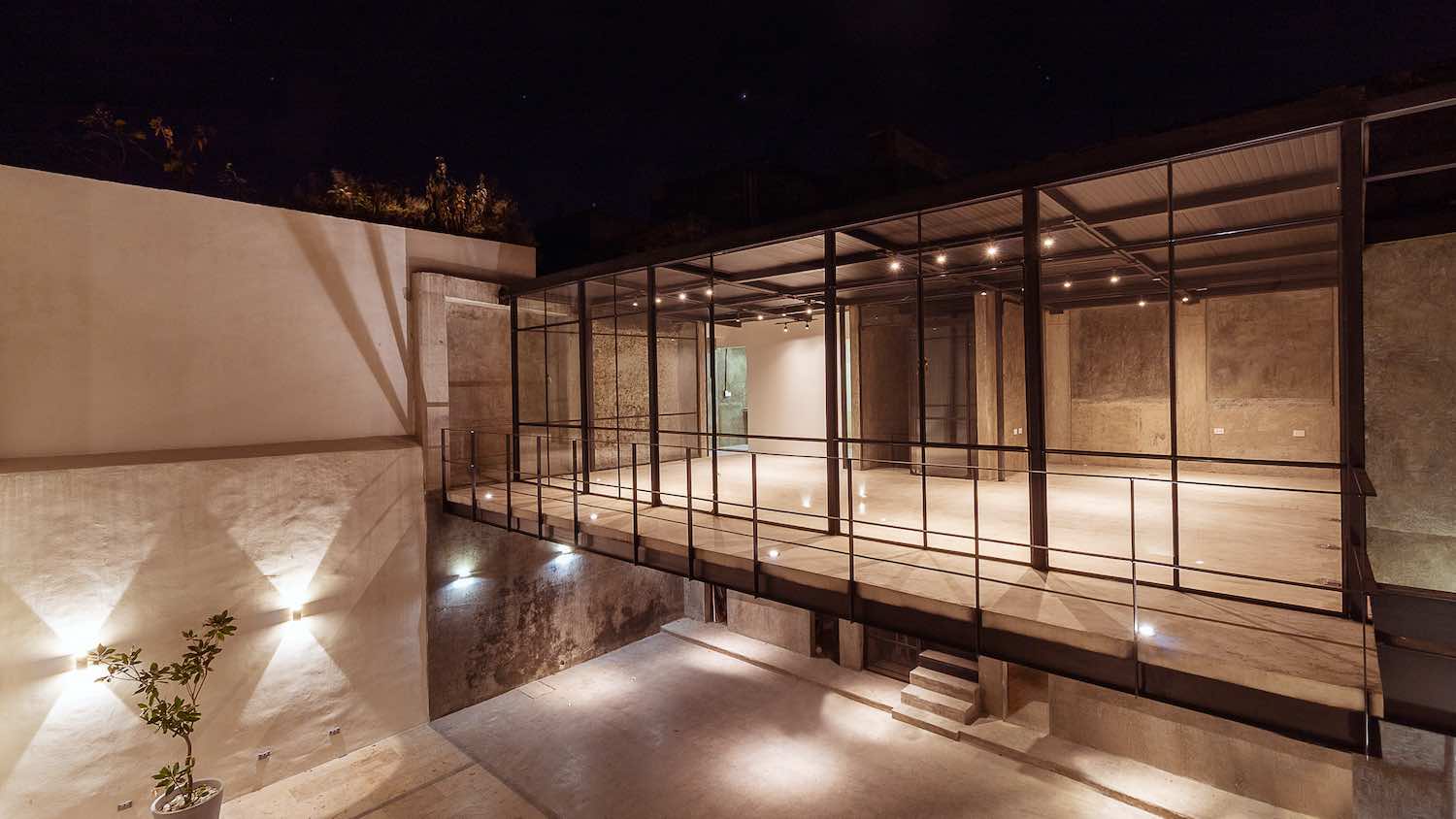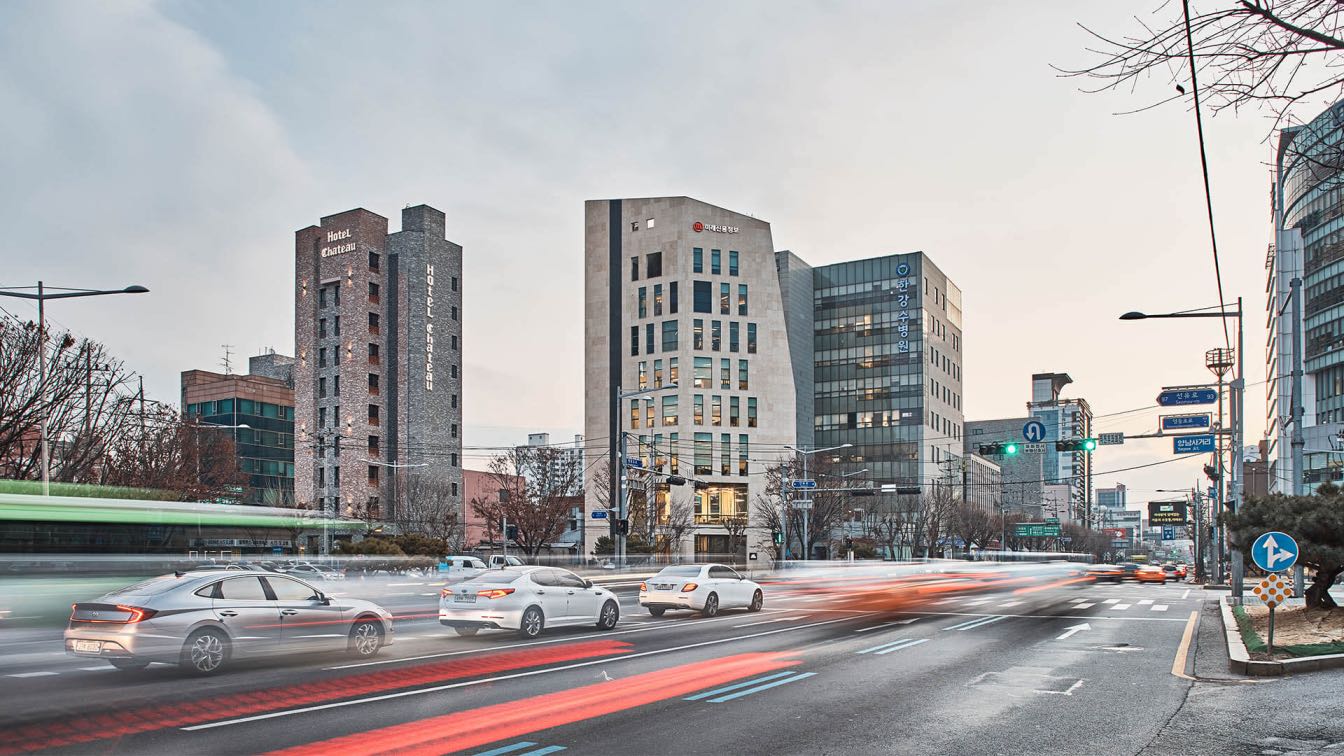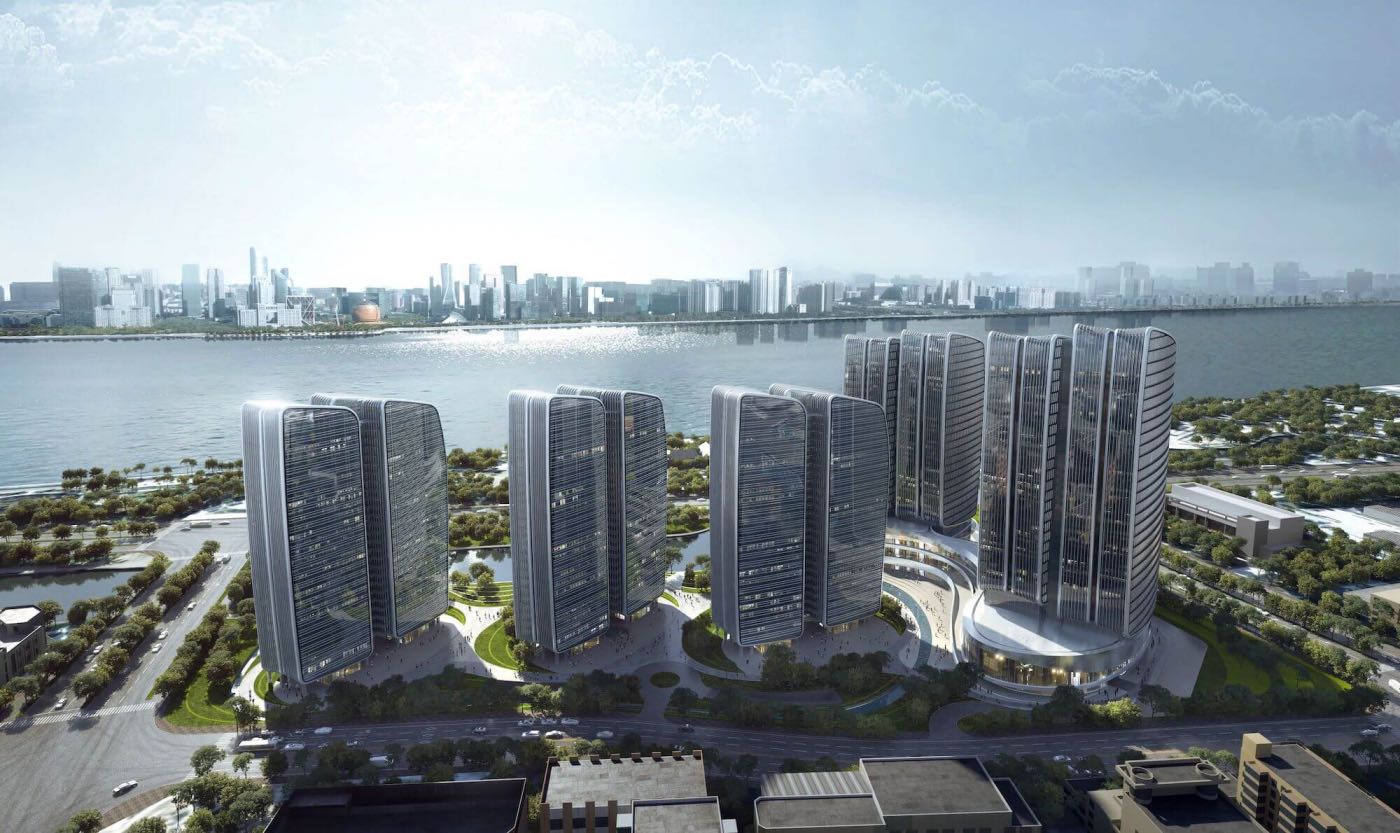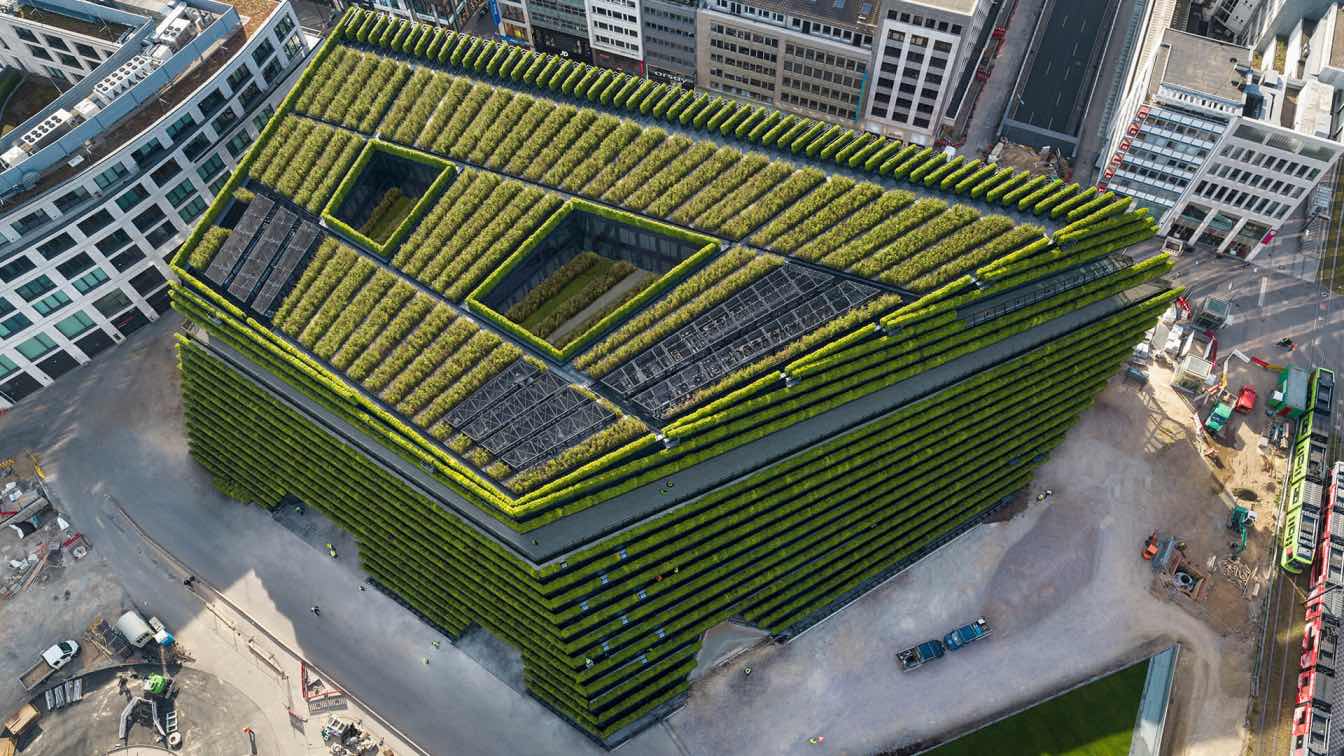MVRDV has begun construction on Shenzhen Terraces, a mixed-use project that forms the core of the thriving university neighbourhood in Shenzhen’s Longgang District. The project comprises a stack of accessible plates containing the buildings’ programme, where all communication takes place on the shaded terraces to maximise public life. Designed with sustainability as a focus, the project’s green outdoor spaces mix together with a wide variety of activities – including a theatre, a library, a museum, a conference centre, and retail – to make the site a hub for meeting, learning, leisure, culture, and relaxation. The stacked horizontal terraces provide a valuable contrast to the high-rise towers all around, but they also perform an ecological function: overhangs provide shade and the round shape promotes wind flow and natural ventilation. The abundance of greenery, pedestrian paths, and water features make the project one of the more sustainable in Shenzhen.
 Render by Atchain
Render by Atchain
Combining a pedestrian-friendly landscape with no fewer than 20 different programmes including public transport, Shenzhen Terraces is poised to become a sustainable hub for the surrounding area. The abundant planting and water features reduce the local temperature and provide habitat for urban wildlife, while gardens and rainwater collection generate food and water resources.
The edges of the terraces dip at strategic points to form connections between the various floors and to double as small outdoor auditoriums. In other places, the facades are pushed inwards to emphasize entrances and create recognizable places within the scheme to help visitors orient themselves. At the centre of the largest building, on the east of the site, the terraces curve inward to form an open-air atrium. In the buildings on the western side of the site, a new library concept defines the complex: rather than a separate entity, the library acts as the glue, divided over two buildings and connecting related educational and commercial programmes such as a Youth Activity Centre and a Youth Entrepreneurship Centre, with a “books park” outside. Bridges connect the buildings to turn the second floor into a continuous route and connect Shenzhen Terraces with surrounding developments.
 Render by Atchain
Render by Atchain
An important ambition for the project was to merge the building with the landscape and make the project as sustainable as possible. The landscaping, developed in collaboration with Openfabric, adds patches of jungle-like greenery and public programming between pedestrian routes. These patches host planting that imitates the sub-tropical natural forests of the region, mixed alongside features such as grassy hills, public art, reflective pools, and activity zones for climbing or table tennis. The roofs are also part of this landscape, used not only for photovoltaic panels and rainwater collection but also large, accessible green lawns.
 Render by Atchain
Render by Atchain
“In cities like Shenzhen, it is essential to think carefully about how public space and the natural landscape can be integrated into a dense city. Cool spaces, sheltered from the weather, create an escape from air-conditioned interiors”, says MVRDV founding partner Winy Maas. “Shenzhen Terraces can be seen as a three-dimensional park that makes it possible for students to walk outside to their lectures in the warm weather instead of being locked inside. In this project we are not working against the climate, but with the climate. The naturally ventilated terraces, protected from the sun by overhangs, will soon become fantastic hangout spots for people to meet and study.”
 Render by Atchain
Render by Atchain
 Render by Atchain
Render by Atchain
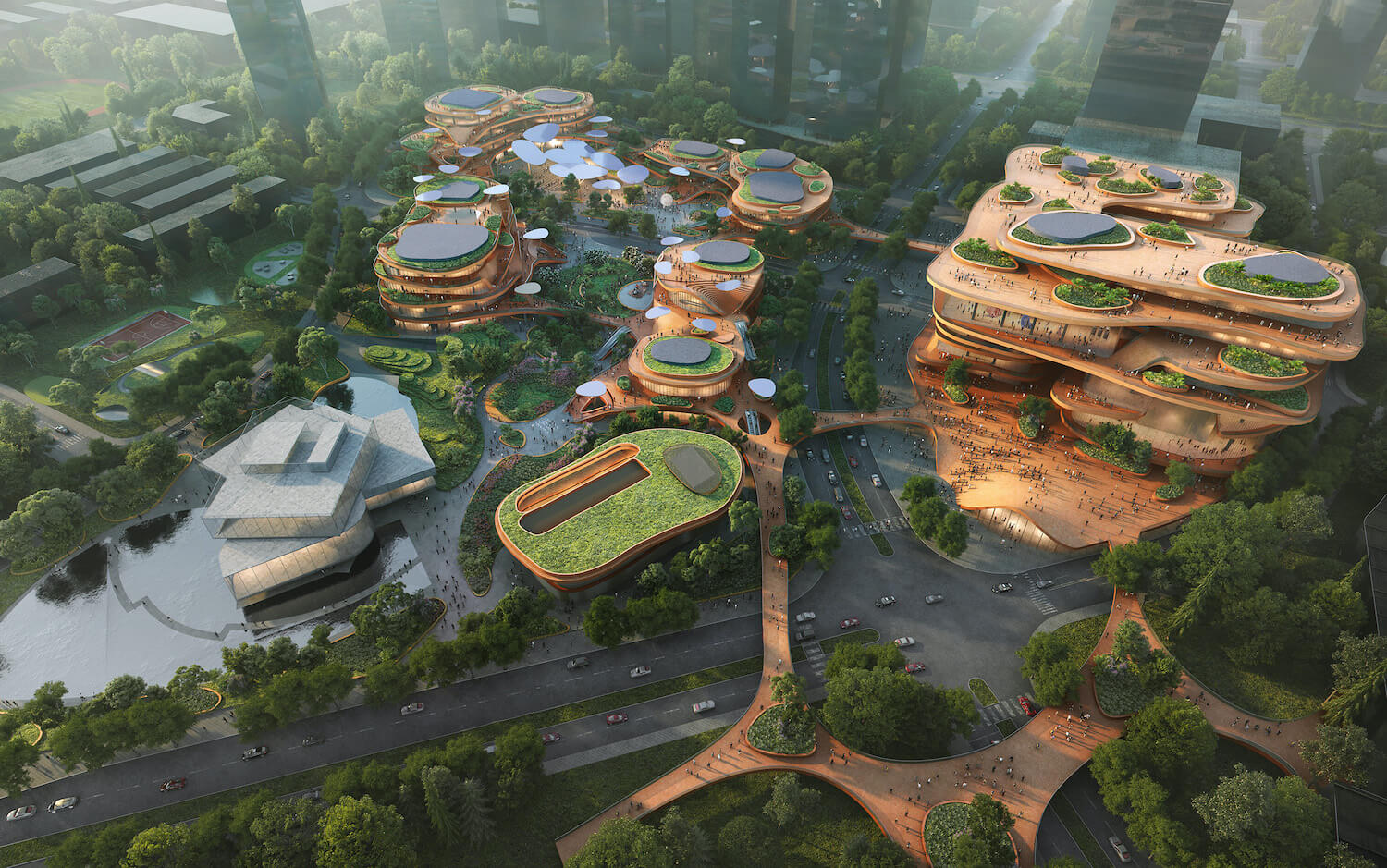 Render by Atchain
Render by Atchain
 Render by Atchain
Render by Atchain
 Render by Light Studio
Render by Light Studio
 Render by Light Studio
Render by Light Studio
 Render by Light Studio
Render by Light Studio
 Render by Light Studio
Render by Light Studio
 Render by Light Studio
Render by Light Studio
 Render by Light Studio
Render by Light Studio



